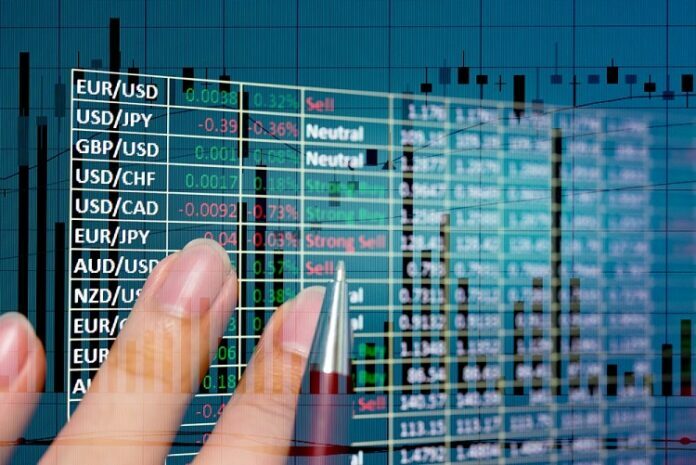Calculating currency spreads (difference between buying and sell rates) and transaction costs in Dubai, UAE.
Several forex brokers today offer various accounts for their clients to choose from.
Of course, a standard ‘Spot’ account is amongst these different account types, which provides the most flexibility in managing financial risks such as currency exchange rate volatility.
For example, if you have a client asking to buy Euros against USD, but by the time they have processed all of their internal procedures, you find out that the price has gone up 4% in your favour, this would be a significant saving which you can pass on to your client through a better quote.
To trade currency pairs with the spot account, you must understand the forex calculation of spreads. Spreads are the differences between buying and selling rates on a currency pair, always quoted in the second decimal.
The spread fluctuates in response to market conditions, so you must have an active account with your broker to take advantage of market movements, rather than being ‘frozen out’ by more prominent traders who may be able to trade more efficiently.
If you can’t access a direct market feed, then an ECN broker is the next best alternative to set their spreads internally.
Let’s look at some examples using two popular currency pairs – EUR/USD and GBP/USD:
Table of Contents
Example 1
For simplicity, let us assume there are no trading fees or brokerage costs.
The asking price for EUR/USD is 1.0500, and the bid price is 1.0450. You would calculate the spread as:
0.050 / 1.0500 = 0.00047 or 4.7 basis points
Example 2
If we add a $5 per trade commission, then the total cost of the trade becomes:
1.0500 + (0.00047 x 5) = 1.0569
So in this example, the commission has increased the spread by almost 5%.
Example 3
If we use an ECN broker, their spreads may differ from what is displayed on a dealing desk platform like MT4. For example, an ECN broker may offer the following EUR/USD spread at the time of writing this article:
Bid: 1.0495
Ask: 1.0510
The ECN broker’s spread is 15 pips, much more comprehensive than the 4.7bp quoted by a dealing desk broker. So you must check the spreads offered by different brokers before opening an account.
So now that we understand how to calculate spreads let’s take a look at some of the factors that can affect them.
The liquidity of the currency pair
The more liquid a currency pair is, the narrower the spreads will be as there is more competition between buyers and sellers.
For example, the EUR/USD is the world’s most traded currency pair, so it’s highly liquid and will have a very tight spread quoted by brokers.
Time of day
The EUR/USD has a smaller spread when it trades in New York because liquidity in the market is at its highest.
However, London trading hours attract a lot of price action so that traders can see increased volatility during these times due to fundamental and technical reasons.
Market conditions
Although the EUR/USD may trade with very narrow spreads when liquidity levels are high, if we experience any political or economic shocks, it would widen considerably as there is less competition between buyers and sellers.
In these conditions, you should always check your broker’s credit risk and consider the use of stop-loss orders and other forms of risk management to avoid losing too much capital.
Larger traders
Institutional traders such as banks, hedge funds and brokers deal with larger spreads compared to smaller accounts because they can afford to trade more efficiently due to their size. Known as ‘dealing in the volume’—it reduces the average price of a transaction without affecting the spread of each trade.
We need to open an account with a broker with competitive rates, or we’ll merely be paying over the odds for our trades just because we don’t have thousands of dollars to deposit.
In Summary
These are just some of the factors that affect forex spreads, so it’s essential to understand how they work, keep an eye on your trading conditions, and avoid being ‘frozen out of the market due to wider spreads.
Many other factors affect spreads, so you should always research before opening an account with a broker.
Once you’ve found a suitable broker, it’s advisable to open several demo accounts and practice dealing with different spreads and market conditions so you can get a feel for how everything works.
It will not only help you decide if this is the right career path for you, but it can also save you money in the long run by allowing you to test different strategies when practising on demo accounts.
Check here to find more info.











